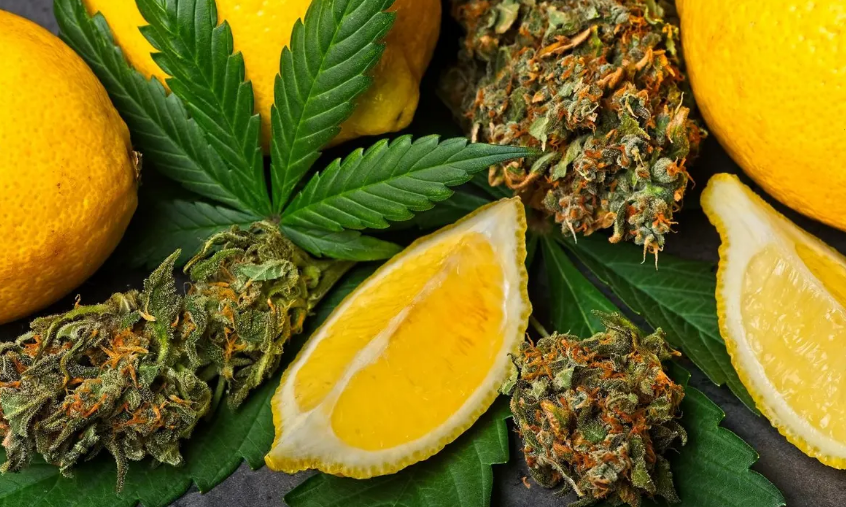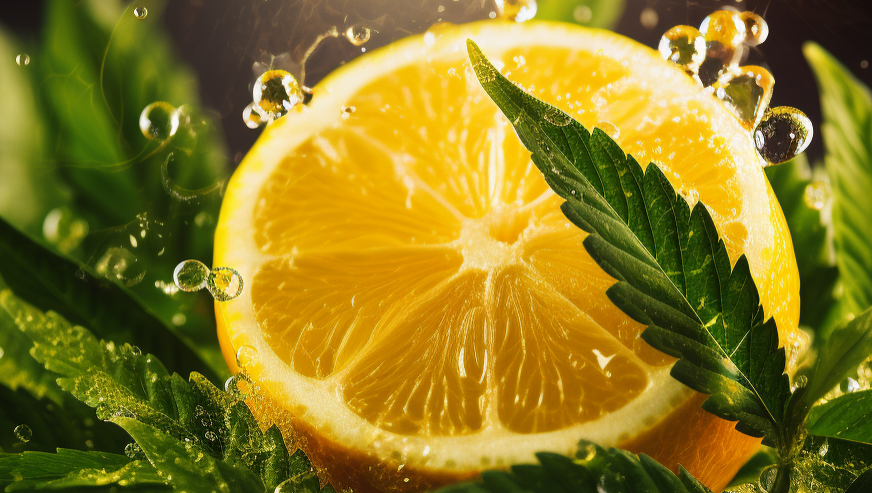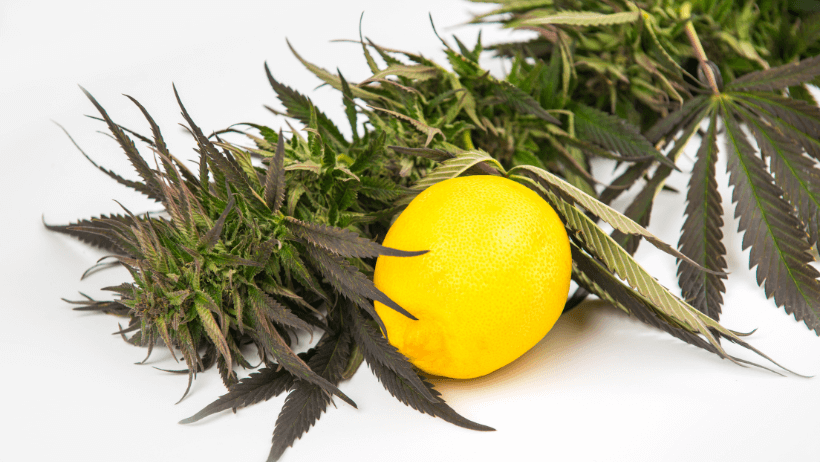Key Takeaways
- Terpenes like linalool, myrcene, and beta-caryophyllene play crucial roles in reducing anxiety through their natural interactions with the brain’s neurotransmitters and receptors.
- Individual responses to terpenes can vary significantly, emphasizing the importance of personalizing terpene use to find the most effective blend for each person’s needs.
- Engaging with healthcare professionals knowledgeable about botanical treatments can enhance the safe and effective use of terpenes in managing anxiety.
Anxiety, a pervasive condition marked by worry and fear, can significantly disrupt daily life, triggered by factors like stress, genetics, or environmental changes. In the realm of natural remedies, terpenes—aromatic compounds found in many plants, including cannabis plant —emerge as a promising ally.
By influencing neurotransmitter systems, specific terpenes can profoundly mitigate anxiety symptoms.
This article explores these natural compounds, their unique properties, and how they can be harnessed to combat anxiety, providing a gateway to enhanced well-being and mental health.

Understanding Terpenes
What Are Terpenes?
Terpenes are volatile aromatic compounds produced by a wide variety of plants, serving as a critical component in their survival by deterring herbivores and attracting pollinators with their potent aromas.
In the context of cannabis, terpenes are pivotal not only for defining the distinct scent and flavor profiles of various strains but also for enhancing the plant’s therapeutic properties.
When consumed, these terpenes interact synergistically with cannabinoids, influencing the effects on the human body, and potentially altering mood, behavior, and perception, thereby playing a significant role in the plant’s impact on human health and wellness.
The Science of Terpenes and Anxiety
Terpenes found in medicinal cannabis play a pivotal role in modulating the endocannabinoid system, which is crucial for maintaining mental and physiological balance. These aromatic compounds interact specifically with receptors within this system to help alleviate symptoms of anxiety.
By enhancing the therapeutic effects of cannabinoids also present in medical cannabis strain, terpenes such as linalool, myrcene, and beta-caryophyllene contribute to a more calming and stress-reducing experience for treating anxiety.
This synergy underscores the potential of certain cannabis strains as a natural treatment option to treat anxiety.
Overview of Common Anxiety Disorders
Anxiety disorders encompass a variety of mental health conditions distinguished by pervasive and excessive fear and anxiety [1]. Below are some of the predominant types:
- Generalized Anxiety Disorder (GAD): This involves persistent, excessive worry about numerous aspects of daily life, often disproportionate to the actual likelihood of the events.
- Panic Disorder: Characterized by recurrent, unexpected panic attacks, these episodes are intense periods of fear and physical symptoms like heart palpitations and shortness of breath.
- Social Anxiety Disorder: This disorder causes an intense fear of social interactions where one fears being judged or scrutinized by others.
- Specific Phobias: These are extreme fears of specific objects or situations, such as heights or flying, which lead to significant avoidance behaviors.
- Obsessive-Compulsive Disorder (OCD) : Marked by unwanted, persistent thoughts (obsessions) and repetitive behaviors (compulsions) that the individual feels driven to perform.
- Post-Traumatic Stress Disorder (PTSD): This condition is triggered by previous traumatic events, leading to severe anxiety, flashbacks, and avoidance of situations that remind one of the trauma.
Best Anti-Anxiety Terpenes

Linalool
Linalool, prominently found in lavender, stands out for its calming effects, making it highly effective to reduce anxiety. This terpene’s soothing properties are attributed to its ability to modulate neurotransmitter activity, thereby reducing stress responses and promoting relaxation.
Strains like Amnesia Haze and Special Kush, which are rich in linalool, are recommended for their potent anti-anxiety benefits. Incorporating these strains can help harness the therapeutic potential of linalool for a more tranquil and balanced mental state.
Myrcene
Myrcene, prevalent in high-THC indica strains, is renowned for its sedative qualities that contribute significantly to relaxation and stress relief. This terpene helps calm the mind and body by enhancing the natural neurotransmitter functions that regulate sleep and relaxation.
Its presence in strains such as Granddaddy Purple and Blue Dream makes them particularly effective for easing tension and fostering a peaceful state, aiding those looking to manage stress and anxiety through natural means.
Beta-Caryophyllene
Beta-caryophyllene is distinguished by its ability to interact directly with the body’s CB2 receptors, offering notable anxiety-reducing effects.
This terpene is found in products like full-spectrum CBD essential oils and specific cannabis strains such as Sour Diesel and OG Kush, which are known for their therapeutic benefits.
For optimal use, consider starting with a low dose and gradually adjusting based on personal comfort and effectiveness, ensuring a tailored approach to relieving anxiety through this powerful, naturally occurring compound.
Alpha-Pinene
Alpha-pinene is a terpene that enhances mental clarity while also aiding in anxiety reduction. Strains such as Jack Herer and Dutch Treat, which are rich in alpha-pinene, are celebrated for their ability to clear the mind and promote alertness.
Incorporating these strains can provide dual benefits: mitigating anxiety and sharpening cognitive functions, making alpha-pinene a favored choice for those seeking mental acuity alongside stress relief.
Terpenes to Approach With Caution
Limonene
Limonene, known for its mood-enhancing properties, can paradoxically increase anxiety at high doses. This citrus-scented terpene is prevalent in strains like Super Lemon Haze and Lemon Skunk, which should be used with caution.
To mitigate potential adverse effects, it’s advisable to start with low doses and observe individual responses. For those sensitive to its effects, exploring other terpenes with more consistently calming profiles may be beneficial, ensuring a more tailored and cautious approach to using limonene-rich products.
Humulene
Humulene, recognized for its anti-inflammatory properties, might inadvertently cause restlessness in some individuals. Found in strains like White Widow and Headband, it is essential to moderate the intake of humulene-rich products.
Balancing its use involves starting with small doses to assess tolerance and gradually increasing as needed while monitoring effects. This approach helps maximize the therapeutic benefits of humulene while minimizing the risk of restlessness or discomfort.
Terpinolene and Ocimene
Terpinolene and ocimene, while offering unique benefits such as sedative and anti-fungal properties respectively, also carry risks if not used judiciously. Terpinolene, found in strains like Ghost Train Haze, can induce relaxation but may intensify sedative effects.
Ocimene, present in strains like Golden Pineapple, provides an uplifting experience but may lead to overstimulation.
To safely enjoy their benefits, start with low doses and choose strains where these terpenes are balanced by others that mitigate their stronger effects, ensuring a well-rounded and positive experience.
How to Use Terpenes Effectively
To effectively utilize terpenes for their health benefits, starting with low doses is critical. This approach ensures that you can observe how your body responds and adjust accordingly, optimizing the therapeutic effects while minimizing potential discomfort.
It’s equally important to recognize personal tolerance levels, as these can vary significantly among individuals.
Additionally, engaging with healthcare professionals who have expertise in botanical medicine can provide tailored advice, enhancing safety and efficacy in using terpenes, especially for those with specific health conditions or on other medications.
Conclusion
Terpenes offer a promising natural solution to relieve anxiety behaviors, leveraging their unique interactions within the brain to foster a sense of calm and well-being.
As explored throughout this article, various terpenes such as linalool, myrcene, and beta-caryophyllene possess specific properties that can help alleviate anxiety.
Individuals need to explore and identify the terpene blends that best meet their personal health needs, potentially transforming their approach to managing anxiety with natural, plant-based options.
Sources –

